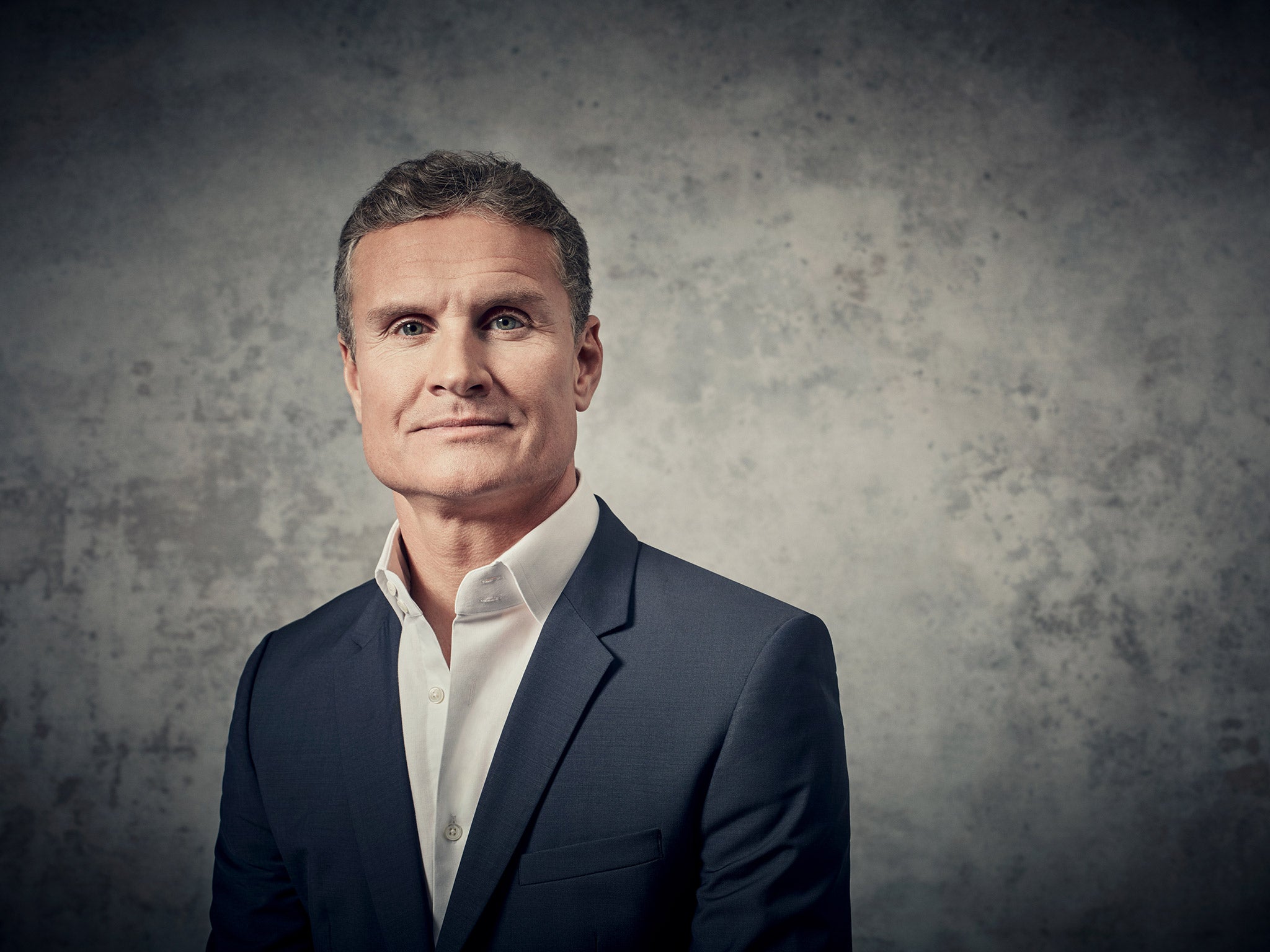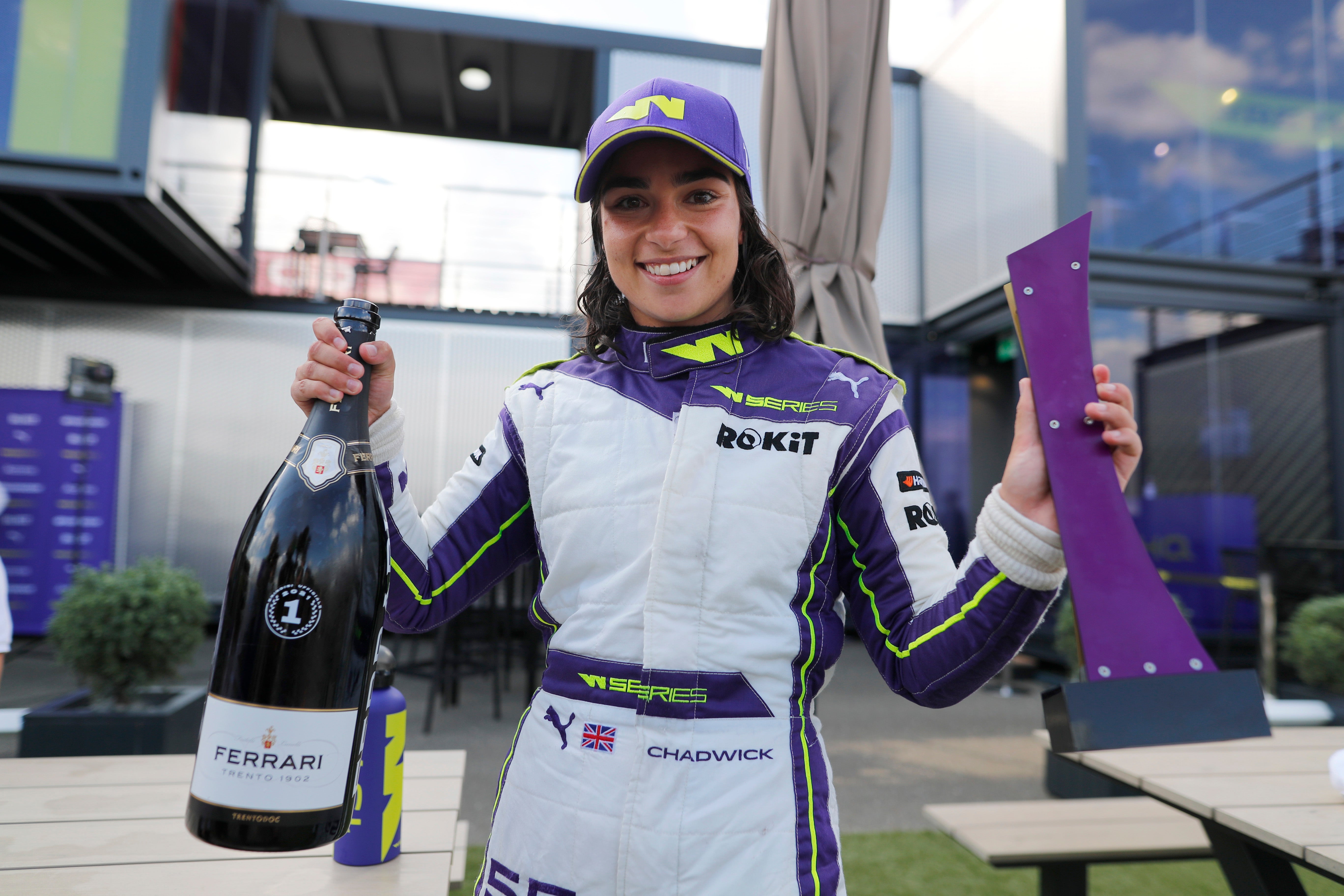David Coulthard on women in motor sport, fan power and F1’s future: ‘Evolve or die’
Exclusive interview: The former McLaren driver talks F1 Sprint, diversity in elite sport and the return of fans at race tracks

Your support helps us to tell the story
From reproductive rights to climate change to Big Tech, The Independent is on the ground when the story is developing. Whether it's investigating the financials of Elon Musk's pro-Trump PAC or producing our latest documentary, 'The A Word', which shines a light on the American women fighting for reproductive rights, we know how important it is to parse out the facts from the messaging.
At such a critical moment in US history, we need reporters on the ground. Your donation allows us to keep sending journalists to speak to both sides of the story.
The Independent is trusted by Americans across the entire political spectrum. And unlike many other quality news outlets, we choose not to lock Americans out of our reporting and analysis with paywalls. We believe quality journalism should be available to everyone, paid for by those who can afford it.
Your support makes all the difference.Formula One exists not just as the pinnacle of modern motor sport, but at the intersection where so many of the new technologies, ethical challenges and news stories which define 21st-century living come together in a great big bundle of speed and peril.
This is a racing championship first and foremost, of course, but F1 is also everything from reality TV to climate change, from the gender pay gap to stunning feats of mechanical engineering, and from moments of true glory to the constant danger of death.
Some have spent decade after decade circling the globe as part of a Formula One paddock, a continent-hopping travelling circus with its own stuntmen, star attractions and ringmasters. Few of them have seen the sport change from as many different angles as David Coulthard, the former Williams, McLaren and Red Bull driver who challenged Michael Schumacher for the world championship in the early 2000s and remains part of the spectacle as lead analyst for Channel 4’s coverage in the UK.
“I think it’s important [to make changes to the sport] because it’s adapting to the world we now live in,” he says. “That world of digital content and connectivity has been in place for several years, but I think the Covid lockdown allowed people [in F1] to look at how fans engage and how you connect and grow your fanbase.
“Without crowds the race was still the race, but there’s no human interaction. To be able to celebrate that with the crowd, fans and noise again [is great]. Previously, it was like going to a nightclub for an acoustic set… Quite difficult to get your groove on to!”
Formula One was purchased from Bernie Ecclestone by Liberty Media Corporation, an American firm specialising in sports and entertainment, back in 2017 and has sought to modernise the sport in various forms since then. Changes include allowing Netflix to film the behind-the-scenes documentary series Drive to Survive, and altering the structure of the race weekend to include F1 Sprint, an additional 100km race which takes place on a Saturday after qualifying and ahead of Sunday’s race itself.
“Formula One in its previous guise didn’t tap into digital and streaming and all those areas,” Coulthard explains. “Now people come to me after Drive to Survive and say, ‘This is interesting, I’m going to watch Formula One,’ and that can only be a good thing.”
The Sprint format has been tested at Silverstone and Monza so far this season, and will be run once again this weekend at Interlagos, but drivers and fans have given it a lukewarm reception. F1 recently conducted a fans survey to garner feedback which could influence the future direction of the sport, and only 6.1% said the show had been “significantly improved” by F1 Sprint.
Coulthard, though, is a fan. “I’m the sort of person that has always had an open mind to change. The sport has evolved so much since I started racing in the 90s. I fail to see why drivers getting to race more is a bad thing. I fail to see why fans getting more action on track is a bad thing. The offering has been broadened, which helps the promoters sell the tickets and recoup their investment into Formula One.”
That notion of changing to adapt to what a newer generation of potential F1 fans is looking for, and to better reflect contemporary society, is something which has increasingly underpinned Coulthard’s recent work.
50-year-old Coulthard retired in 2008 and immediately began television work with the BBC, before setting up a production named Whisper Films with presenter Jake Humphrey in 2016, which secured the contract to produce F1 broadcasts for C4 five years ago. Formula One is an extremely white, male, able-bodied and heterosexual environment, but the coverage Whisper has produced for C4 has given prominent roles to the likes of Billy Monger, the young racing driver turned pundit who lost both legs in a crash at Donington Park, and Naomi Schiff, a black female driver who also works as a presenter.
“Diversity and inclusion are core values [of mine]. Life is not one-shoe-fits-all. I’m a 50-year-old man that sees life through my experiences, so I regularly write myself out of the TV running order because I think that Naomi and Billy are brilliant, and I learn something from them.”

The W Series is an all-women racing championship founded in 2019, and since this season its races have been run at events alongside the F1 calendar. Coulthard’s company produces coverage of its races for C4, and he also sits as an advisory member on the series’ board. Increasing the profile of women in motor sport is a cause close to the Scot’s heart.
“My primary motivation is that my sister raced, and I think she lost an opportunity to take it further because my career was taking off. It’s a real shame she wasn’t given the support I was, and so I’m going to do my best to help young girls and young women to have a platform where it’s not about money. It’s about allowing them to develop their talent early enough, and show whether they’re good enough.”
The W Series concept was initially met with some scepticism from prominent figures in motor sport, who doubted that having women competing separately from men could work. Coulthard emphatically disagrees.
“You always get naysayers,” he says. “And what I would say is, ‘What are you doing to help women in motor sport?’ If you have another way of helping then great, let’s see you put your money with your mouth is. But if you just [complain] and don’t do anything to help, and you’re a prominent person in motor sport, then you really don’t deserve that position because you’re discriminating.
“If we have crowds at all the W Series events next year, it will make it the biggest live audience of any women’s sport in the world. That is significant, and that’s putting names to faces of otherwise unknown women in the sport.”
Coulthard himself has had to adapt to a new way of doing things, going from racing driver to business owner with Whisper, but believes there are plenty of similarities.
“My role as a racing driver was not to worry about all the technical stuff, I had to be the voice of the car,” he says. “I had to trust my team to design, build, and ultimately operate a safe and fast racing car. And that’s exactly the same approach I have to television production. When I’m doing my television stuff, doing the ‘blah blah’, I trust entirely in the team. I can go from being shareholder to tea boy – I’ll get the kettle on and make sure everyone is fed and watered.”
As the world around us changes enormously with every passing year, so must motor sport. Coulthard sums up his attitude to both his own path in life and also what he believes is the way forward for Formula One when, towards the end of our conversation, he simply says: “Evolve or die.”
Tune in this Saturday for the F1 Sprint at the Sao Paulo Grand Prix, live on Sky Sports and highlights on Channel 4.
Join our commenting forum
Join thought-provoking conversations, follow other Independent readers and see their replies
Comments